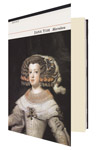In a Harriet the Spy world of stomping in empty rooms and lonely thrills self-made and self-appreciated, Jane Yeh’s Marabou would be a secret notebook. Attuned to a certain sensibility, Louise Fitzhugh’s 1964 children’s book fed the appetite for dissidence. Harriet made it professional. With age, Yeh appends, comes agency, for things like adultery and revenge; this is the fun and sting of it. (Marabou is terrifyingly grown-up, and one poem, “Teen Spies,” sends that charming kid high—“We can’t tell / How this enigma will unfold, but we’re so full of energy we can’t come down”—crashing with its last, breaking line: “I am past / seventeen and have never been kissed.”)
Marabou, Yeh’s first full-length collection (Teen Spies, a chapbook, came out in 2003), is jester-like, modest in office but extreme in detonation. “With my low production values I’m a little / Unfinished,” begins one poem (“Bad Quarto”); another claims to be “kitted out for frivolity.” But coquetry can’t cover for exquisite insidiousness. “Cumbria” is a worst-case-scenario pastoral in which the flock must be culled: “We got left behind. Something went wrong.” The sheep feign grazing and listen to the wind making sheep-shaped clouds, the poem sliding into a twilight of repressed foreknowledge. Most oddly touching is “House,” a quiet nightmare with a trash-feeding pig and fumes rising from a “mysterious oven” (post-confessional poetry’s primal scene, or one of them at least). Half against speech, half pitifully dependent on it, Yeh readies fear’s fragments: “When the wolf’s at the door and the door isn’t locking”; “What happens after the feet start moving”; “The blackout blinds down and the ceiling fan.” Who wouldn’t want to live here, with her? Any conspiring heart would. “House” gets our affection because of its exhaustion, its distaste for itself and the act of its writing, honest and ugly. (The lowest impulse outstrips the art, as Ted Hughes, another poet of love in a cold climate, might’ve sensed when he inscribed a copy of Lupercal: “When among wolves, howl and devour / And you will mate with a wolf, in your worst hour.”)
Marabou is willful of idiom and ideology: self-confidence looks good in poems like these, particularly when it’s rotted through with desperation, a shabby-housecoat sort of grace (e.g., Cloris Leachman in the final seconds of The Last Picture Show). Usurpers will be usurped and vengeance had, in Jacobean or noir versions of the age-old boys-who-don’t-call story. But this is the flip side of loyalty, and even sweeter, of a foolhardy certainty in high romance: “When I hear from you… Every lottery ticket in my drawer / Will win.” Though not enough for a book so morally singular, Marabou also knows to relieve us with mess and crass. In the end, the showiest, most vulnerable moments hold their shape best, staked as they are against the consequences of not holding one’s shape: the word strings (“off-spindle, missish, lo-fi and hissy”) and nonce formulas (“if strapless / Were to ‘having it’ as bang-up is to ‘done that,’ / Would my position be worth a flutter?”). The kid worry—how to grow into a world of terrorizing abstractness—is adult obsession, riskier by the year, an often gendered dance on the question of control. When Yeh calls herself “an original / Bit of nonsense, your doll,” the pet name seems perfect, chancy and slighting and, with no apologies, empowering.





